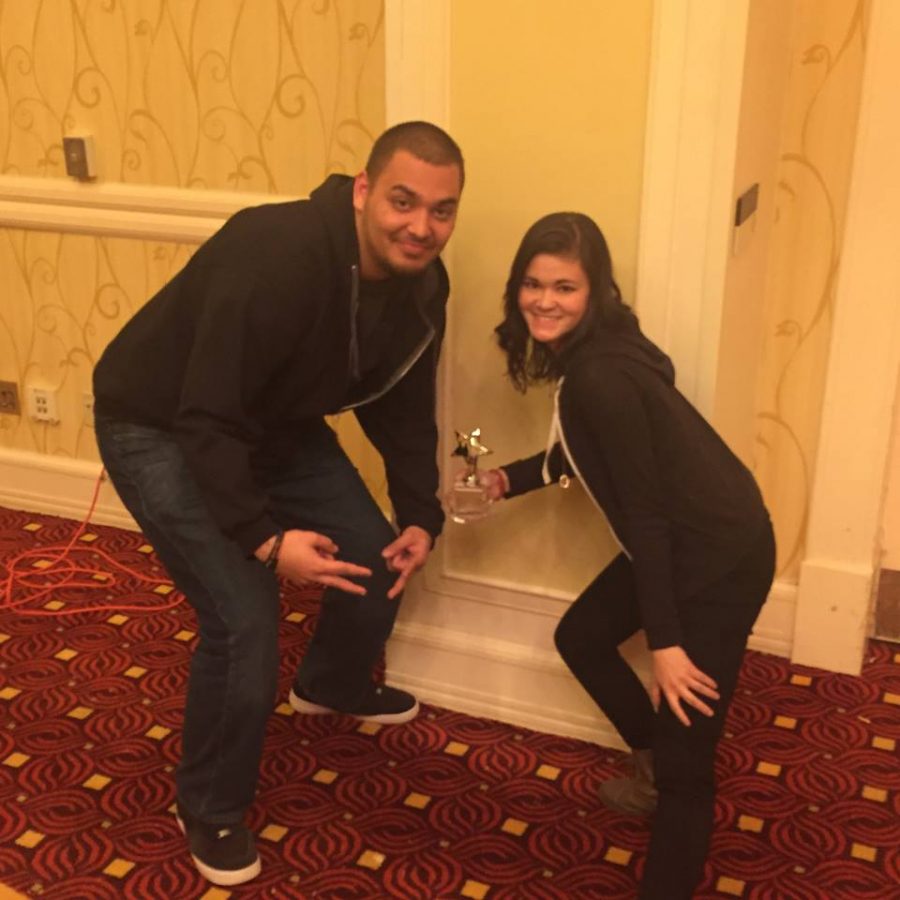Two students will represent Wake Forest in the National Debate Tournament in New York this March to try and earn the university its third national debate championship.
Junior Corrine Sugino and sophomore Charles Athanasopoulos won the University of Texas college debate tournament Feb. 5-8 with the help of Jarrod Atchison, an assistant professor in the department of communication and the director of the debate team.
“This was a great win for the debate team for two reasons,” Atchison said. “First, this was the first time we had won this prestigious tournament since 1978. Second, this is fantastic momentum going into the National Championship.”
It keeps everyone working hard for our squad goal to bring another National Debate Tournament championship back to Wake Forest.”
The University of Texas college debate tournament hosted over 120 collegiate teams from across the country this year. Sugino and Athanasopoulos defeated the team from Harvard University in the octo-finals and the team from Georgetown University in the quarter-finals, before advancing to defeat Liberty University’s team in the semi-finals and finally Rutgers University’s team for the win.
In New York, they will compete against 78 other teams for the National Debate Championship title, which they last won in 2008.
“Wake has a history of excellent debate teams, and Charles and I will follow in the footsteps of giants as we move into the National Debate Tournament,” Sugino said. “I am nervous, but that’s part of the fun honestly.”
When asked what it was that sets Wake Forest debate apart from other college programs, Athanasopoulos credited Atchison.
“Our major strength is that we subscribe to a general teaching philosophy called ‘Big Tent Debate,’” Athanasopoulos said. “Atchison has inculcated in us a belief that debate is for the debaters. Wake Debate is about process over product. It is not about having your name on a plaque, rather it is about working hard to meet whatever standard you have set for yourself. This is what makes Wake Debate stand out from other teams. Debate is about making the students and coaches involved become better scholars, better activists and — most importantly — better people.”
Unlike collegiate sports, where teams spend practice time preparing to compete against a certain opponent with known strengths and weaknesses, debate teams do not know what team they will be competing against until half an hour before they must take the floor.
Additionally, different colleges bring several teams of two to every debate — Wake Forest brought seven teams to Texas — so not every team from the same college or university is guaranteed to have the same debate strategy.
“Our debaters represent a huge diversity of argument styles, which make it very difficult to prepare against our squad,” Atchison said.
“We believe in a ‘Big Tent philosophy’ — where debaters excel if they are researching and presenting arguments that they are interested in, rather than forcing them to stick to one particular set of positions. The result is that our opponents have to prepare for our individual teams rather than simply focus on Wake Forest as one team,” Atchison added.
In the University of Texas tournament, teams of two completed eight preliminary rounds of debate before advancing to a bracket-stlye elimination cycle.
In the preliminary rounds, teams had to take one stance — for a resolution of the conflict — four times and the opposing stance against a resolution for the conflict — four other times.
This year’s topic was the presence of the United States military in the middle east, northeast Asia and the Greater Horn of Africa.
“Winning the tournament was surreal,” Sugino said. “We always prep to win a tournament, but when it actually happened I couldn’t believe it. I was exhausted, excited and extremely proud of my debate partner Charles Athanasopoulos, who continues to amaze me with his brilliance every time we debate. I am excited to compete at the National Debate Tournament. It will be hard but competition makes debate all the more fun and motivates me to work harder.”
“Winning Texas is important, but it still isn’t our goal,” Athanasopoulos said. “Rather it is part of the process of becoming national champions. It’s up to us to take this momentum, to not become complacent, and to go in there on April 1, and win the whole thing.”
















